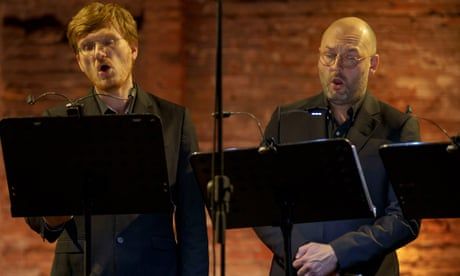
Various venues, Venice; Southbank Centre, London
Work inspired by nuclear destruction was powerful and pensive; a modern group skilfully used age-old techniques and Charles Hazlewood’s disabled and non-disabled players provided an uplifting, immersive experience
“Father of the atomic bomb” is a boast enough to get a person noticed or, as J Robert Oppenheimer himself put it, quoting the Bhagavad Gita, “destroyer of worlds”. The American physicist, though scarcely forgotten, had to wait for Hollywood and Christopher Nolan’s 2023 blockbuster to gain modern celebrity. If cinema was slow to catch on, musicians have long been on the case of the lonely scientist and his 1945 test in the New Mexico desert: from songs by Sting and Billy Bragg in the 1980s to John Adams in his opera Doctor Atomic (2005), a work that finally abandons music and ends with a bone-shaking, heart-chilling electronic boom.
A more recent Oppenheimer piece is Radiance, by the Lithuanian composer Justé Janulyté (b 1982). For 12 voices and live electronics, it made a disturbing impact at the 68th International festival of Contemporary Music or Biennale Musica, which comes under the umbrella of the Venice Biennale. Janulyté explores that perennial question: how wild, unfettered sound – here, the delayed aftermath of an atomic detonation – can topple into the patterns, the notes and rhythms, of music. Intended as a requiem for victims of the first atomic bombing, Radiance uses two groups of high and low voices, wordless, moving in and out of focus, splitting and uniting in apocalyptic aural fusion.
Continue reading...